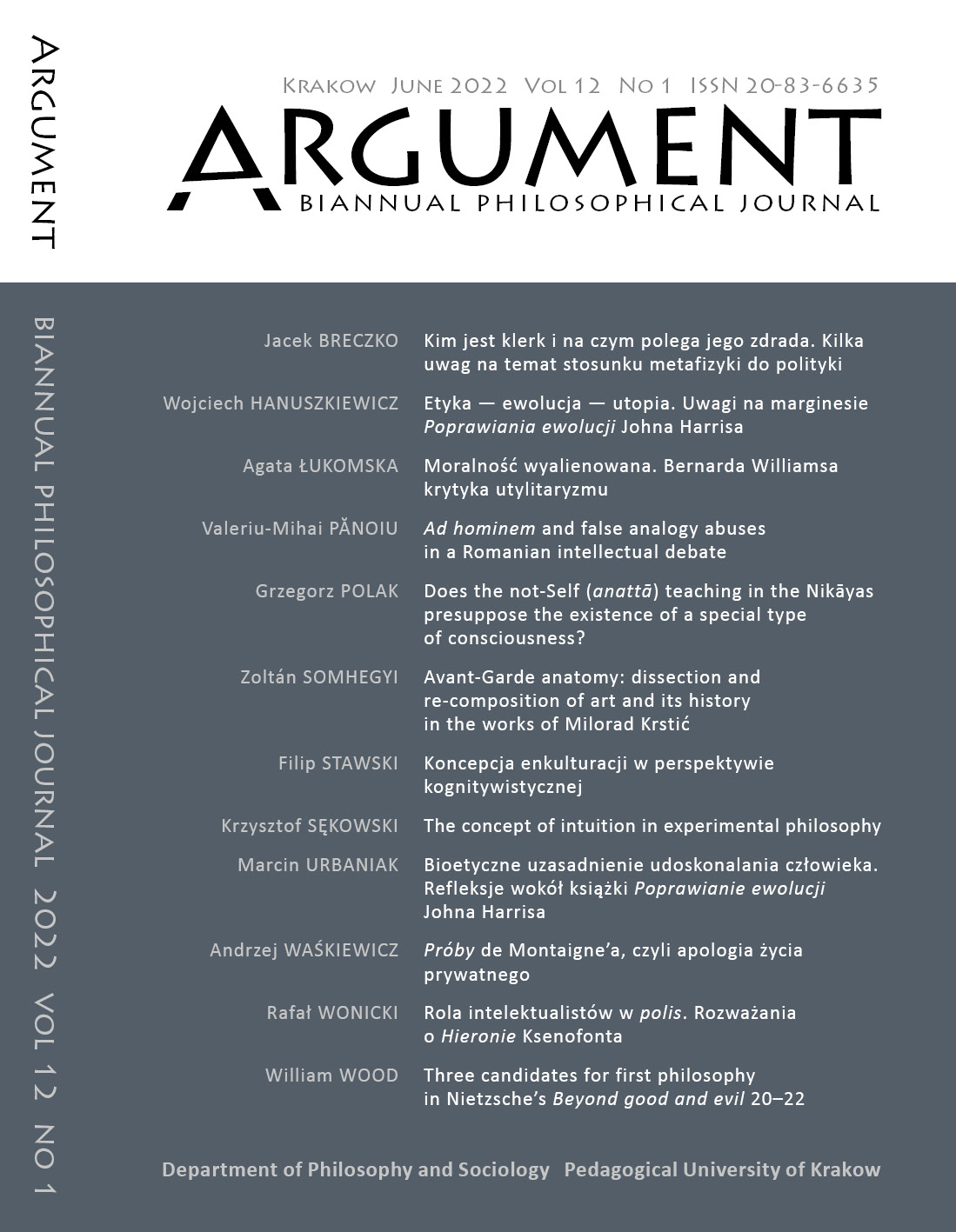Does the not-Self (anattā) teaching in the Nikāyas presuppose the existence of a special type of consciousness?
Keywords:
early Buddhism; viññāṇa; the mind; citta; the aggregates; khandha-s; cognitive science; Sāṃkhya; ĀgamasAbstract
According to the historically dominant interpretation of the anattā teaching, human being is a conglomerate of the five aggregates (khandha-s). However, several early Buddhist Nikāya texts seem to suggest that within human being there exists a dichotomy of the aggregates and their counterpart. The latter may cling to the khandha-s but also become dissociated from them. In this paper, I critically consider a hypothesis forwarded by several scholars that the early Buddhist texts presuppose the existence of a special type of consciousness (viññāṇa) which is not identical with viññāṇa-khandha, as the counterpart to the aggregates. According to this interpretation, such consciousness is considered pretty much synonymous with nibbāna, the ultimate state of liberation. I argue that despite its value and advantage over the historically dominant interpretation of anattā teaching, this hypothesis is nonetheless problematic on many levels. In the first part of the paper, I consider the textual problems of the hypothesis in question. In particular, I focus on the implications of the Kevaṭṭa Sutta and the Dhātuvibhaṅga Sutta as well as on the problematic interrelation of citta and viññāṇa in the Nikāyas. I also argue that the hypothesis of special consciousness as nibbāna is difficult to reconcile with the apophatic approach and strong emphasis on ineffability present in the substantial portion of the Nikāyas. In the final part of the paper, I consider philosophical problems of the theory in question. In particular, I argue that it is difficult to conceive pure transcendental type of consciousness as an agent of attitudes such as clinging or abandoning, thus making it an unlikely candidate for being the counterpart of the aggregates. In order to make better sense of the problems in question, I consider certain parallels of the Nikāya doctrine with modern philosophy of mind as well as with ancient Indian Sāṃkhya doctrine.


